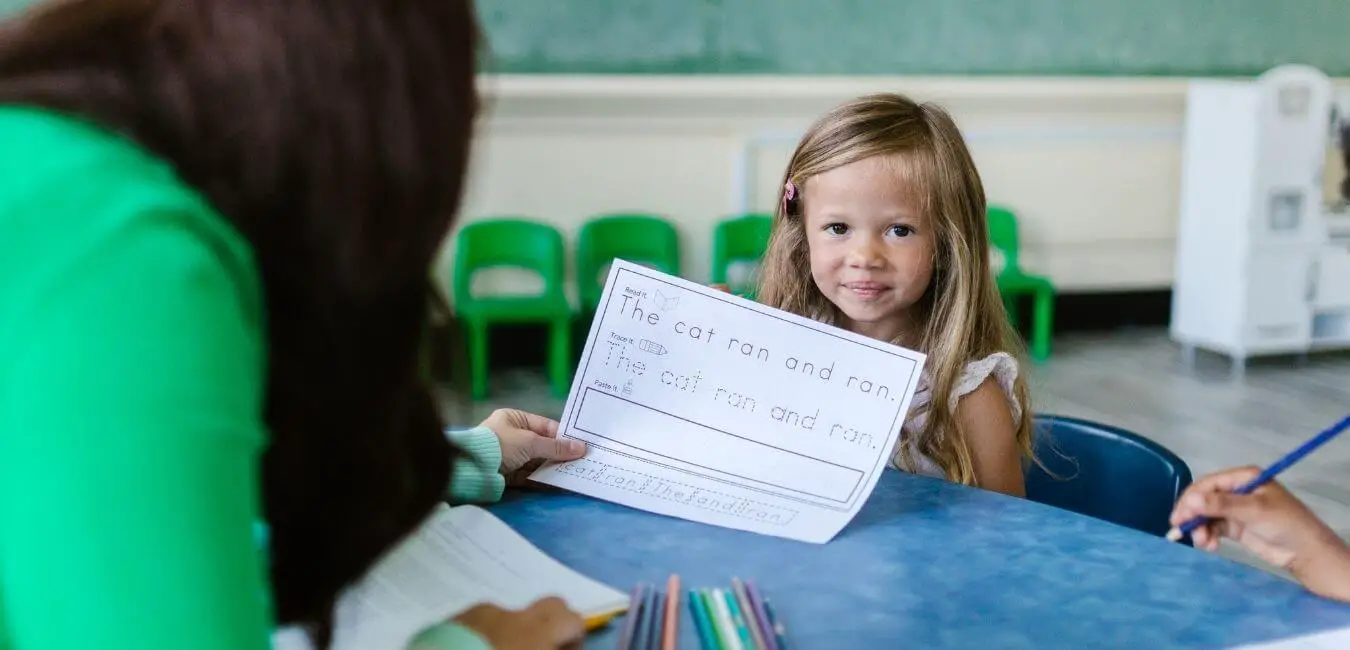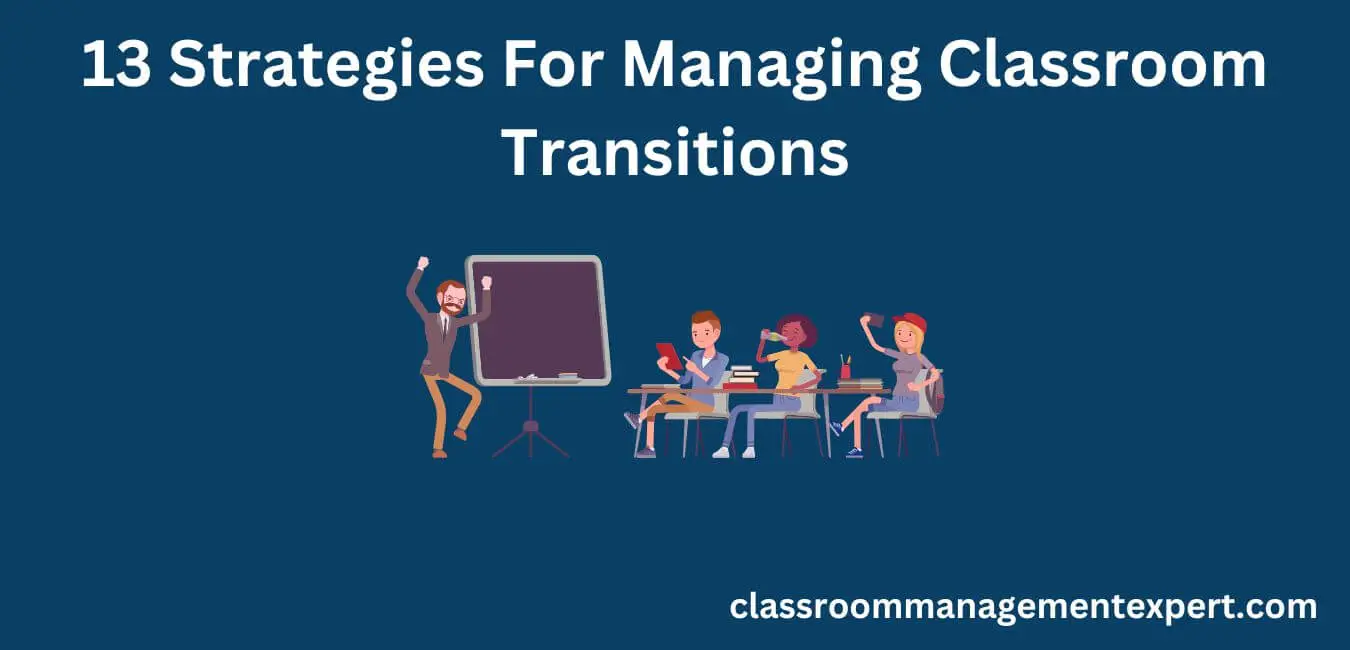This article will discuss how to deal with a student who talks back. Many children are full of life, energy, and curiosity! However, some students have trouble paying attention in class or following instructions – these are the kids that talk back to their teacher.
It can be frustrating when you’re trying your best to teach your students, but they refuse to listen or follow directions because they think it’s more important what they say than what you say. This article offers strategies for dealing with this problem so that all parties involved feel respected and heard without resorting to yelling at the child or disciplining them harshly for talking out of turn. These strategies may not work every time but hopefully one of them will!
Why Do Some Students Talk Back at Their Teacher?
There are many reasons why some students talk back to their teacher. Here are 17 of them.
1). Some students want to just test the limits of authority because they have yet to learn that being disrespectful is not acceptable behavior in any setting.
2) Some students seek attention, and disrespect is sometimes a way for them to get noticed.
3) Some students simply don’t know how to express their feelings or thoughts without resorting to disrespect.
4). Some teachers are disrespectful, and the students pick up on this behavior. They then become disrespectful, too, because they will do anything that is within their power to get attention from the teacher.
5) Some students talk back at their teacher because the student feels like they don’t get enough of their teacher’s time and attention.
6) Some students talk back at their teacher to get sympathy from other students in the classroom, who will often join in on this behavior, or encourage it.
7). Some students may feel that challenging authority is necessary for them to learn anything and that challenging authority is their way of showing that they are actively engaged in the learning process.
8). Some students talk back at their teacher because they feel like it’s a fight or flight situation, and oftentimes disrespecting the teacher is seen as either fighting with them or running away from them.
9) Sometimes some students talk back out of ignorance, and simply do not understand the impact that their disrespect is having on everyone in the classroom.
10) Some students talk back at their teacher because they want to test boundaries and see how much they can get away with. Sometimes they do this to protect themselves from abuse and trauma, and other times it’s just a way for them to gain a sense of control over their situation.
11) Sometimes students talk back at their teacher because they are frustrated with the assignment or activity that they are given.
12) Some students talk back to their teacher because they are afraid of being wrong.
13) Sometimes students talk back to their teacher because they have trouble understanding directions.
14) Some students talk back at their teacher because they do not understand why the teacher is acting the way they are and want to know what’s going on.
15) And some students talk back at their teachers because they think it’s funny to make a sarcastic joke or comment about what’s going on in class, even though it is very disrespectful.
16) And sometimes, students talk back to their teachers because they are bored in class and have nothing to do but watch the clock until it’s time for them to leave.
17) Some students talk back to their teachers because they are exhausted from everything that is going on in their personal lives and need somebody to vent to about it.
Check out why classroom management is extremely important here.
How To Avoid Students from Talking Back at You?
Everyone wants to have a good relationship with their students, but it is also the teacher’s responsibility to set boundaries and speak up if students try to break those boundaries. If you want your students to talk back less often, here are some tips that teachers use:
1. Don’t Teach in A Monotone Tone
When you teach all day, it’s easy to forget you have a voice! But your students probably don’t think about it. If you use a monotone voice, then the class will likely become bored and start talking among themselves. They may begin daydreaming if they are not inspired by what is being taught.
2. Don’t Call on Distracted Students
It is not your responsibility to make sure every student pays attention. Sometimes students are distracted because of their social lives or family problems, so they may not be in the correct mode while you are teaching. If you call on unaware students more than once, they will talk back more often despite how much they’re being provoked. This is why it’s important to be more aware of student actions.
3. Make Sure You Are Not Provoking Students Unintentionally
Sometimes you may not know why students are talking back, but it can be your fault for not noticing distracted behaviors like squirming, yawning, playing with hair, etc. Be mindful of what you’re saying and how it comes off to your students. Certain phrases such as “Do I have to explain this again?” may provoke a strong reaction from some students who are annoyed with you already.
4. Try to Connect with Students on A More Personal Level
Use your outside voice and try not to yell or speak too loudly when trying to get someone’s attention. Instead of saying “Hey!”, you can try saying something like, “Excuse me.” or “Can I have your attention?” This is more likely to make students listen to what you are asking them.
5. Create A Connection with Students Outside the Classroom
If you want students to follow the rules inside the classroom, then show them that you care about them as people. Connect with students on a personal level and talk to them like regular human beings, not just about schoolwork. Once they feel more comfortable around you, they will be less likely to talk back at you during class times.
6. Find A Targeted Approach to Student Needs
Some students need discipline and others need support and encouragement. One way of approaching this is by making them more involved in the lesson plan by asking for their opinions on it. Instead of shaming a student when they talk back, you can always try to ask them why they said what they did instead.
7. Explain to Them If You Are Tired or Not Feeling Well
Some days are way harder than others, especially if you have a lot of classes to teach. If you’re feeling rather exhausted but still teaching class that day, then you need to tell the students right away, so they know what’s happening. They will not take it personally and will understand if they feel you’re more irritable than usual.
8. Give Clear Instructions and Expectations to Students
Students like to know what you are expecting from them in terms of behavior. If they have a set rule for being respectful in your class, then they will learn the lesson faster no matter how many times it’s repeated. Be sure you are 100% clear when giving instructions so there is no confusion for follow-up questions.
9. Give Students Their Own Time to Speak, Especially in Small Groups
If you want students to learn the lesson more effectively, then they will need time to think on their own before speaking up in class. You can give them this opportunity by letting them speak with classmates first or having group discussions without your input. If individual students are called upon randomly, then they will feel less comfortable speaking up in front of the class.
10. Be as Cooperative and Understanding as Possible
Different students learn at different paces, so if you want to avoid students talking back at you during lessons, then try not to pressure them too much. Give them more time to comprehend lesson material no matter how long it takes them. This will help when working with students who are slower in the classroom.
11. Don’t Interrupt Students When They Are Talking to Their Peers
Never stop a student from talking with their classmates, even if you are trying to get their attention for an important reason. If they feel like you’re disrespecting them when they’re in the middle of a conversation, then they may say something back when you speak to them next.
12. Be Prepared for Questions or Comments from Students
If you plan on having class discussions with your students, then prepare yourself for questions or comments that might come up during their thoughts. Their input is important and equally as important as yours, so learn how to work with it well. You can always ask them if they have any questions or comments throughout the lesson to gauge their thoughts.
13. Create Different Types of Assignments for Students to Work On
If students feel like you’re constantly checking on them and expecting a certain behavior from them, then they may become frustrated with you. By creating different types of assignments, students will feel more at ease and know when they need to speak up in class. For example, some students might prefer a group project while others would rather work alone on a solo assignment.
14. Take the Time to Get to Know Your Students
It’s your duty as a teacher to know your students both inside and outside the classroom. By making small talk with them or talking about their lives, you can learn more about them as individuals instead of thinking of them as one big group. This will allow you to create better relationships with all your students without coming down too hard on them when they make mistakes.
15. Have Fun and Enjoy Your Students
When you’re in the mood and ready to enjoy your students’ company, then they will definitely want to enjoy yours. If you make class more of a game or something fun for them, then they will be highly engaged when you need them to follow certain rules. It’s important that everyone enjoys each other’s company in your classes.
16. Give Students a Say in The Classroom Rules and Expectations
Every teacher wants their own rules and expectations to go as smoothly as possible in the classroom, but that means nothing if students don’t want those same things too. If you want them to be responsible for following class rules, then allow them a say from time to time. This will keep them motivated throughout the year and avoid them talking back at you with their complaints.
17. Have Fun and Participate in Class as Well
If you want students to care about what is going on in your classroom, then you need to care as well. Set an example for them by having fun with lessons and always being prepared to answer questions. This will encourage them to follow your lead, especially when they notice that fun is the main goal every day in class.
18. Have A Reward System for Good Behavior
It’s always important for teachers to have rules and consequences for wrong behavior, but it’s just as crucial to have rewards for good behavior. When you notice a student following the rules and behaving well, then consider giving them a small reward as a symbol of great work. This will encourage other students to follow their lead and do the same.
19. Don’t Get Caught Up in Your Phone or Other Distractions
If you want your students to listen to what you have to say, then you need to set the example and listen to them. If you’re always checking your phone or sending emails during class, then they will see that as a sign of disrespect, and it can quickly turn into talking back at you. There’s no reason why teachers should be caught up with anything else when their students are right there in front of them.
20. Don’t Yell or Get Angry at Your Students
Yelling and getting angry at your students will only turn them against you as a teacher. You should never have to yell or get upset because they’re talking back at you, so always remain calm when speaking with them. If they continue to act up in class, then remove them from the situation and tell them they need to talk with you after class.
Interested in knowing why students misbehave in the classroom, click here.
How To Manage It When A Student Talk Back At You?
So, you’re a teacher and one of your students just talked back at you. As a teacher, that’s unacceptable and can’t be tolerated in any circumstance.
Below are 17 ways or steps to help you handle or deal with a student when he or she talked back at you:
1. Ask the student to leave the classroom for a short time-out.
2. Call their parents immediately if it is unaccustomed behavior from the particular child, or if the student’s behavior has escalated enough to make you feel unsafe, or in any way uncomfortable with them being there.
3. Do not engage in a conversation about why they talked back at you until they have returned from time out. They will most likely be defensive and/or upset, so giving them a moment to settle down is a good idea.
4. Once they have returned, calmly explain to them the reason why their behavior was unacceptable and then give them a chance to apologize for it. Be sure that you have specific examples of what they did that was wrong so they can get a clear picture of your perspective on the situation.
5. If they don’t apologize or continue to argue with you, refer them back to their parents and/or guardians.
6. If they do show that they understand why what they did was wrong and have a sincere apology for it, then be sure to forgive them immediately. By holding grudges against students when they talk back at teachers, you’re not giving them a chance to grow and mature from the situation.
7. If they continue to be unapologetic and defiant, give them more time-outs or even assign detentions.
8. If their behavior is escalating and becoming physical in any way, call for help immediately. Do not try to handle the situation yourself.
9. If they talk back at you again, remind them of their previous behavior and tell them the next time it happens, their punishment will be much more severe.
10. Be consistent in your discipline for talking back at a teacher or authority figure so that they understand that if there are no consequences for that behavior, it will most certainly escalate.
11. If your student continues to talk back at you, it might be time to call in a parent-teacher meeting.
13. If you are dealing with a particularly difficult case and none of these steps work or if talking back continues to escalate, consult the school’s counselor to help them with their behavior.
14. Make sure that you never talk back at your students. They are the ones lower than you in the pecking order and need to know that they should not take talking back from their teachers lightly.
15. Remember that it is important to always remain calm when dealing with a student who has talked back at you, no matter how infuriating or disrespectful he or she may be.
16. If the student continues to be rude and disrespectful despite your best efforts, consider talking to your school administration about their behavior as it is affecting their grades and other aspects of the learning process. It may be necessary for them to attend a special class or course to learn to be respectful towards authority figures before returning to normal classes because, if their behavior doesn’t change, the entire school may have to deal with it.
17. Remember that your actions on tackling the misbehavior must be in line with your schools’ rules and standards as well as those of the education ministry of your country. Don’t go beyond your boundaries as a teacher.
Final Thoughts
The goal of teachers and educators is to teach students the skills they need to succeed in life. But sometimes, kids don’t want to learn – or worse yet – they feel like it’s their job not only to test your limits but also those of authority figures. Talking back at a teacher can be an act that seems disrespectful on its own, but when combined with other signs such as physical aggression, refusal to do work, etc., talking back becomes something much more serious. Whether you’re dealing with one child who refuses to listen or if many children seem unruly and unwilling to learn around you, these 17 steps will help you get through this difficult time without losing your cool while still teaching them how important respect is. Find more articles here.


















